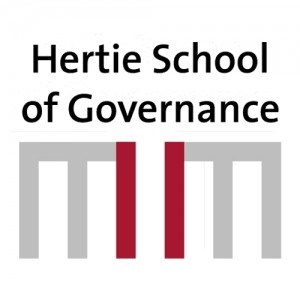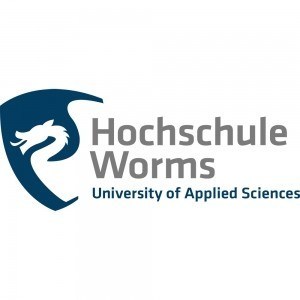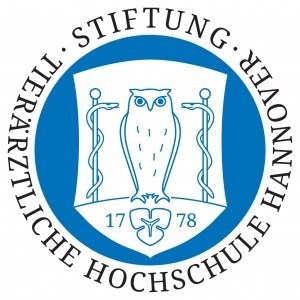Photos of university / #fu_berlin
Advertisement
The TransAtlantic Masters Program (TAM) trains graduate students pursuing international careers in administration, diplomacy, business, policy-making, consulting, teaching, and research. Offered by way of partnerships between world-renowned universities in the United States and Europe, TAM is a unique and intensive degree program. TAM students pursue graduate study on both sides of the Atlantic while earning a master´s degree.
In the face of accelerated European integration and intensification of US-EU relations, it has become imperative that students wishing to enter into international careers understand the institutional history and social, political, cultural, and economic practices of nations that comprise this growing international community. TAM prepares students to assume positions of leadership in world affairs by providing them with a broad comparative understanding of EU-US politics, policy, and social evolution, complemented by expertise in a particular nation or topic.
To meet the demands of students wishing to pursue various career goals in the expanding transatlantic arena, the TAM program offers two different tracks as well as various degree options. Students can choose to receive a master´s degree from the University of North Carolina, or they may opt for a degree granted by one of the European universities.
TAM is an intensive degree program offered by a number of different universities in the US and Europe. The academic themes of TAM track I´s interdisciplinary program are the policy, politics, and society of the transatlantic region. The research-oriented track of TAM (TAM track II) focuses on European governance.
Both TAM tracks offer two different degree options to students. There are unique advantages and disadvantages inherent to both the US and European degree options. For instance, US nationals should be aware that choosing a degree from a European university renders them ineligible for Federal Stafford loans.
The two academic years are divided into five intensive study modules. After attending the core module and US national module at UNC from August to December, students choose to attend one additional (minimum) site or up to a maximum of two additional universities in Europe to complete the remaining modules: Specialist Module I, Specialist Module II, and the Thesis Module. Your choice of module sites is contingent upon your language abilities as well as academic interests. Students must complete the Specialist II module at the same site where they will be enrolled for the thesis module.
Students must demonstrate proficiency in the language of any given site before making plans to attend courses there.
Exact dates for the European modules vary from year to year, depending on vacation schedules that change annually. Dates will vary somewhat across sites. Modules will each be approximately 15 weeks in duration.
August-December 2009 UNC-Chapel Hill (compulsory)
Spring semester 2010 Bath, Berlin, Paris, Prague
**this module site is chosen by the student
Fall semester 2010 Bath, Berlin, Paris, Siena
**this module site is chosen by the student
Spring semester 2011 Bath, Berlin, Paris, Siena
**this module site will be the same as the one chosen for the specialist II module
Core and National Modules, UNC Chapel Hill, August to December
(compulsory)
The Core and US National modules, taught at the University of North Carolina at Chapel Hill from August to December, provide all students in the program with a common knowledge base in European and US politics, policy, and society before they undertake individualized programs of study in Europe. The UNC classes focus on such topics as Comparative Political Economy: the EU; Politics and Culture in the TransAtlantic Relationship; and Comparative Welfare States. In addition, students select one course of their choice from such departments as Geography, Journalism/Mass Communications, Economics, and History. Finally, all students attend a Friday lecture series. A trip to DC takes place during the fall break.
Specialist Module I, February/March to May/June, 2010
(selected by student)
After a winter break, students resume the program in February / March with Specialist Module I. This module will be offered at five EAUC sites: Bath, Berlin, Paris, Prague, and Siena.
The content information below is still tentative and may be subject to change. Please check back for updated information. *We cannot guarantee placement at any particular site due to yearly fluctuations in the number of seats available.
BATH
The Specialist Module I at Bath University will be called "Global Europe: Roles and Comparisons." This module will have a strong IR focus. Courses may include: Europe in Global Politics, European Political Economy, Organized Crime and Policing, The Politics of Migration, The Politics of Sustainability: Risk, Security and Stability, Britain and Europe, and Norms in International Politics.
BERLIN
Humboldt and Free Universities will offer a module called "Europeanization of National Political Systems in Comparative Perspective." Courses may include: Comparative European Government, Facets of Europeanization - Part One, Foreign and Security Policy, and Europeanization of National Policies and European Societies. This module is offered in German.
PARIS
The Specialist Module I at S-P will take as its title "The Politics and Policies of the EU." Course titles include: The Political System of France, The European Union and the Question of Democracy, Minorities in France, and The Dynamic of the European Society in the 20th Century. Students who opt to study at S-P must be prepared to meet the French-language proficiency standards set by that institution. Please see the Application Forms section for more information.
PRAGUE
Specialist Module I will be taught in English at Charles University and will be called "Central Europe in the European Union - Transformation and Transition." The module will be comprised of several units with titles such as: The EU Enlarged and Transformed, The Politics and Society of CEE Countries, and The Transformation of Eastern European States. Students may also have the option to take Czech language classes.
Specialist Module II, September/October, 2010 to January/February, 2011
(selected by student)
The particular research expertise of participating faculty set the theme for the Specialist Module II. All modules are taught in the language of the host site. Typically students will use the coursework of this module to begin specializing for the masters thesis and will stay at the same site to write the thesis in the summer. The following topics are still tentative. Please check the website frequently for updates.
BATH
Specialist Module II´s main emphasis at the University of Bath will be on the issue of security and will be called "European Perspectives on Security". Since the end of the Cold War, the concept of security has been increasingly broadly defined. The Bath Specialist I Module will include such courses as European Security, The EU´s Common Foreign and Security Policy, International Political Economy, International Terrrorism, and Power, Order and Institutions in World Politics.
BERLIN
The Berlin Specialist Module addresses three main topics: "Politische Integration Europas", "Grenzen und Nachbarn der EU", and "Staat und Gesellschaft in Europa". The module emphasizes the perspectives, problems and potential of the new European Union, while focusing on the political dimensions of European integration in a new geo-political context. The consequences and further policy challenges of an enlarged EU and its relationship with Eastern and South-eastern Europe are analyzed. The political systems, politics and society of the new EU Member States and their bordering neighbours to the East are analyzed as well. Courses may include Europe´s Borders and Neighbors, Democracy and Democratisation in European, and Facets of Europeanisation - Part Two.
PARIS
This module in Paris offers courses with such titles as: Politics of the European Union, The Political and Legal System of the European Union, and Foreign Policy of the European Union. Students who opt to study at S-P must be prepared to meet the French-language proficiency standards set by that institution. Please see the Application Forms section for more information.
SIENA
The Siena´s Specialist Module II, "From National to Global: Changing Perspectives on a Changing World", examines issues which derive from the particular pressures to which Italy is subject. Course titles may include: National Perspectives: Italy, Europe and the EU, European Perspectives: Migration, Culture, Markets, and Europe in Global Perspective. This module is taught in Italian.
Thesis module, February to May, 2011
(selected by student)
This module may be completed in: Bath, Berlin, Paris, or Siena.
In the concluding module of the program, after successful completion of previous requirements, students will write and defend a masters thesis of approximately 15,000 words. The thesis is usually written in the language of the university to which it is submitted, which is also the university which will award the masters degree. *Note: Students complete their Specialist and Thesis Modules at the same European site; however, students are usually given the flexibility to travel and/or relocate as they work independently during the thesis module.
*Disclaimer: Module content is controlled by member sites and is subject to change due to faculty involvement.








